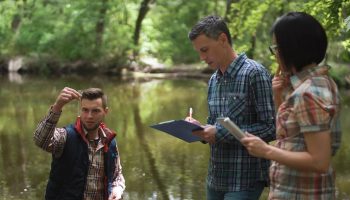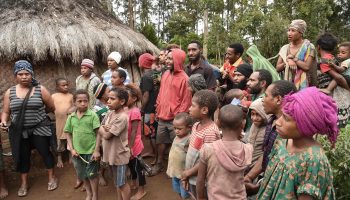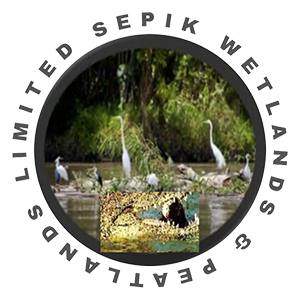At Sepik Wetlands and Peatlands Limited, we recognize that meaningful change cannot be achieved alone. That’s why we place a strong emphasis on building collaborative partnerships with a diverse array of stakeholders, including governmental agencies, non-profit organizations, research institutions, indigenous communities, private sector entities, and international bodies. Through these strategic partnerships, we leverage collective expertise, resources, and networks to amplify the impact of our initiatives and drive positive change for people and the planet.

Our Approach to Partnerships
Our approach to partnerships is guided by principles of mutual respect, trust, transparency, and shared values. We believe in forging long-term, mutually beneficial relationships that are built on a foundation of collaboration, open communication, and accountability. By working together with our partners, we seek to harness the collective power of diverse perspectives, skills, and experiences to address complex environmental and social challenges effectively.
Types of Partnerships

Governmental Agencies: We collaborate closely with governmental agencies at local, national, and international levels to align our projects with policy objectives, regulatory frameworks, and development priorities. Through these partnerships, we contribute to policy dialogue, capacity-building initiatives, and the implementation of sustainable development strategies.

Non-Profit Organizations: We partner with non-profit organizations and environmental NGOs to leverage their expertise, networks, and community outreach capabilities. Together, we implement conservation projects, community development initiatives, and advocacy campaigns aimed at promoting environmental sustainability and social equity.

Research Institutions: We engage with research institutions and academic partners to advance scientific knowledge, innovation, and best practices in sustainable land management, carbon sequestration, and biodiversity conservation. Through collaborative research projects and knowledge exchange initiatives, we contribute to evidence-based decision-making and informed policy development.

Indigenous Communities: We collaborate closely with indigenous communities and traditional landowners to co-design and co-implement projects that respect and uphold their rights, traditions, and cultural heritage. By incorporating traditional ecological knowledge and community perspectives into our projects, we ensure cultural sensitivity, social inclusion, and equitable benefit-sharing.

Private Sector Entities: We partner with private sector entities, including corporations, investors, and industry associations, to mobilize private sector investment, expertise, and technology in support of sustainable development goals. Through innovative financing mechanisms, public-private partnerships, and supply chain collaborations, we drive corporate
sustainability and responsible business practices.

International Bodies: We engage with international bodies, multilateral organizations, and development agencies to align our projects with global sustainability agendas, leverage funding opportunities, and access technical assistance and capacity-building support. Through these partnerships, we contribute to global efforts to address climate change, biodiversity loss, and poverty alleviation.

Our Impact Through Partnerships
Through our collaborative partnerships, Sepik Wetlands and Peatlands Limited has achieved significant impact across a range of environmental, social, and economic dimensions. From carbon sequestration and biodiversity conservation to poverty reduction and community empowerment, our partnerships have helped us amplify our impact, expand our reach, and foster inclusive and sustainable development outcomes.

Join Us in Partnering for Impact
Whether you are a governmental agency, a non-profit organization, a research institution, or a private sector entity, we invite you to join us in our efforts to foster collaborative partnerships for sustainable development. Together, we can unlock new opportunities, overcome shared challenges, and create lasting positive change for the benefit of present and future generations.
